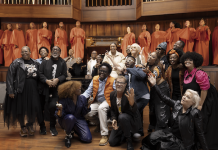The RAMS AMPLIFY™ model combines a high-quality Computer Aided Telephonic Interview (CATI) day-after-recall (DAR) survey as the core currency measurement with supplemental data sources. This hybrid approach captures both basic listening metrics and deeper insights.
Recently the Broadcast Research Council of South Africa (BRC) hosted Ian Garland of Milton Data, modeller of the new Radio Audience Measurement (RAMS) AMPLIFY™ Reach and Frequency data, to present the intrinsic nature of the model. RAMS AMPLIFY™ provides a comprehensive view into radio listening behaviours across the diverse South African market.
‘South Africa’s radio landscape is incredibly vibrant with over 300 community and commercial stations broadcasting in 11 official languages across four distinct audience segments,’ said the BRC’s CEO, Gary Whitaker. ‘Accurately measuring listening in this complex environment requires innovative methodologies and robust data integration.’
Key Findings On Radio In South Africa
Radio is in a good place. The latest RAMS data highlights radio’s continued strong reach and resonance in South Africa:
– 75% of South Africans 15+ listen to radio weekly, with an average daily time spent listening of 5 hours and 12 minutes.
– Radio scores well across all socio-economic groups.
– Even as digital platforms grow, broadcast radio co-exists strongly, with 68% of social media users and 76% of music streamers being weekly radio listeners as well.
– Commercial and public stations attract varied audiences, with many stations garnering over 1 million weekly listeners across languages like Zulu, Xhosa, Afrikaans and English.
‘Radio’s intimacy and local cultural connections enable it to thrive alongside new media,’ said Whitaker. ‘Stations like Ukhozi FM, Metro FM, and Umhlobo Wenene FM remain powerhouses with vast footprints even as digital behaviours advance.’
Fusing Data For A Complete View Of Audio
The plan: construct a 7-day listener from a CATI based DAR methodology by building a synthetic panel of listeners. While the CATI survey is the core of RAMS AMPLIFY™, the BRC worked to incorporate other data sources to enrich insights. Their previously proposed MediaCell passive measurement panel was paused in October 2023 due to various challenges deploying the app in certain segments.
By skilfully fusing and modelling the CATI data, RAMS AMPLIFY™ data provides both robust ratings and rich insights. Advanced modelling starting with 73,920 respondents and a 24-month database creates a virtual panel of 400,000+ respondents to allow for reliable analysis of listening by municipality, socio-economic segment, age and more.
‘We’ve created a best-in-class fused solution that combines the advantages of a high-quality phone survey with leading data science techniques,’ confirmed Whitaker. ‘This allows us to deliver a true single-source view of audio alongside robust planning data for radio.’
Going forward, the BRC will further enhance RAMS AMPLIFY™ with improvements such as a streamlined questionnaire; a crosstab database that is aligned with the planning database in that it too is a 7-day dataset and 24-months rolling; potential incorporation of online and face-to-face elements when gathering data and the inclusion of streaming listeners into the planning data. They also aim to examine opportunities beyond audience measurement such as fusing RAMS AMPLIFY™ with audio need-states.
‘With a solid core measurement now established, we can explore radio’s role in the full audio landscape, including streaming, podcasting and more,’ concluded Whitaker. ‘Our goal is to provide an unparalleled understanding of how brands can best use audio to engage audiences across South Africa.’
For additional information, the full presentation and video can be found here.










